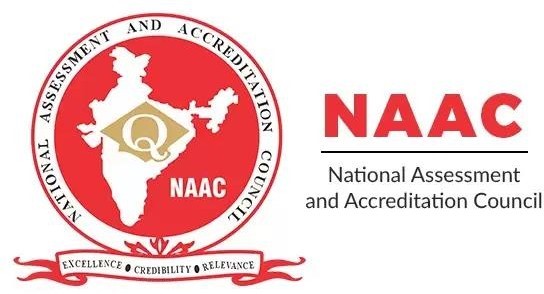Description

Copyright infringement not intended
Context: The National Assessment and Accreditation Council (NAAC) chairperson resigned after the controversy over the university grading system.
Details
- Days after complaining in a letter to the University Grants Commission (UGC) that universities were receiving "doubtful grades" through unethical means, the chairman of the National Assessment and Accreditation Council (NAAC) submitted his resignation.
.jpeg)
National Assessment and Accreditation Council (NAAC)
- The NAAC is an autonomous body under the University Grants Commission (UGC).
- Its core function is to assess and certify Higher-level Educational Institutions (HEIs) with grading.
- It evaluates through a multi-layered process; whether a higher education institution meets the standards of quality set by the evaluator in terms of curriculum, faculty, infrastructure, research, and other parameters.
- The ratings of institutions range from A++ to C.
- If an institution is graded D, it means it is not accredited.
- Accreditation process
- An applicant institution has to submit a self-study report of information related to quantitative and qualitative metrics.
- The submitted data is then validated by NAAC expert teams, followed by team visits to the institutions.
- After the recent controversy over “bribery for rating”, the NAAC plans to shift from an “input-based approach” to an “outcome-based approach”.
- How many institutions are accredited?
- There are 1,043 universities and 42,343 colleges listed on the portal of the All India Survey on Higher Education. As per the latest data, there were 406 universities and 8,686 colleges that were NAAC-accredited.
- Among the states, Maharashtra accounts for the highest number of accredited colleges.
- Under the rules, only higher education institutions that are at least 6 years old, or from where at least two batches of students have graduated, can apply.
- Aspiring institutes need to be recognised by the UGC and have regular students enrolled in their full-time teaching and research programmes.
- The fear of obtaining a poor grade or no accreditation at all holds back higher education institutes from voluntarily applying for evaluation. This is even after the UGC (Mandatory Assessment and Accreditation of Higher Educational Institutions) Regulations, 2012 made accreditation mandatory.

University Grants Commission (UGC)
- University Grants Commission is a statutory body under the University Grants Commission Act, of 1956.
- UGC is charged with the task of coordinating and maintaining standards of higher education in India.
- It provides recognition to universities and also allocates funds to universities and colleges.
- UGC headquarters are in New Delhi, and it also has 6 regional centres.
- All grants to universities and higher learning institutions are handled by the UGC.
- In 2015-16, the Union government initiated a National Institutional Ranking Framework under UGC to rank all educational institutes.
- UGC also conducts the National Eligibility Test (NET) for the appointments of teachers in colleges and universities.
|
PRACTICE QUESTION
Q. Consider the following Statement;
1. National Assessment and Accreditation Council (NAAC) is an autonomous body under the University Grants Commission (UGC).
2. UGC conducts the National Eligibility Test (NET) for the appointments of teachers in colleges and universities.
Which of the following Statement is/are correct?
(A) 1 only
(B) 2 only
(C) Both 1 and 2
(D) Neither 1 nor 2
Answer: D
Explanation:
Statement 1 is correct: The NAAC is an autonomous body under the University Grants Commission (UGC). Its core function is to assess and certify Higher-level Educational Institutions (HEIs) with grading.
Statement 2 is correct: UGC conducts the National Eligibility Test (NET) for the appointments of teachers in colleges and universities.
|

https://indianexpress.com/article/education/chairperson-of-naac-resigns-to-safeguard-sanctity-of-post-8481024/











